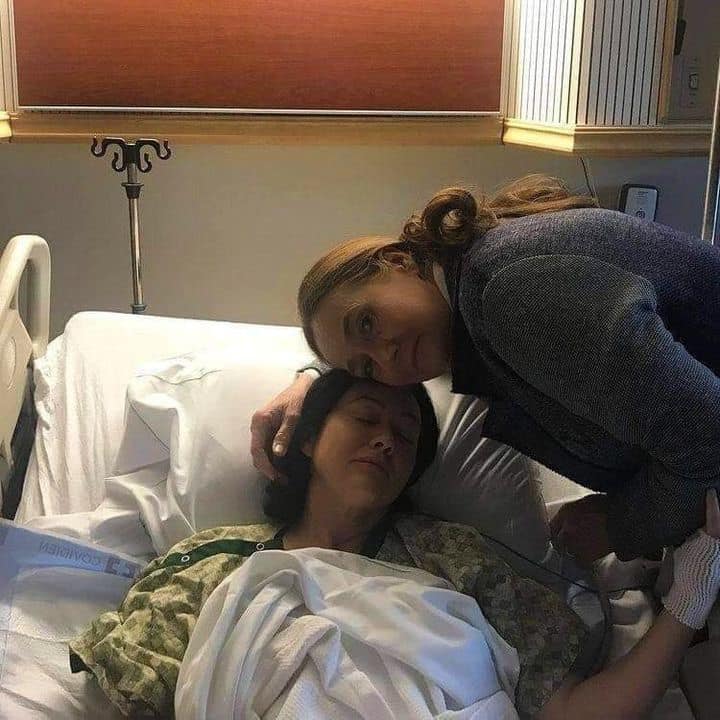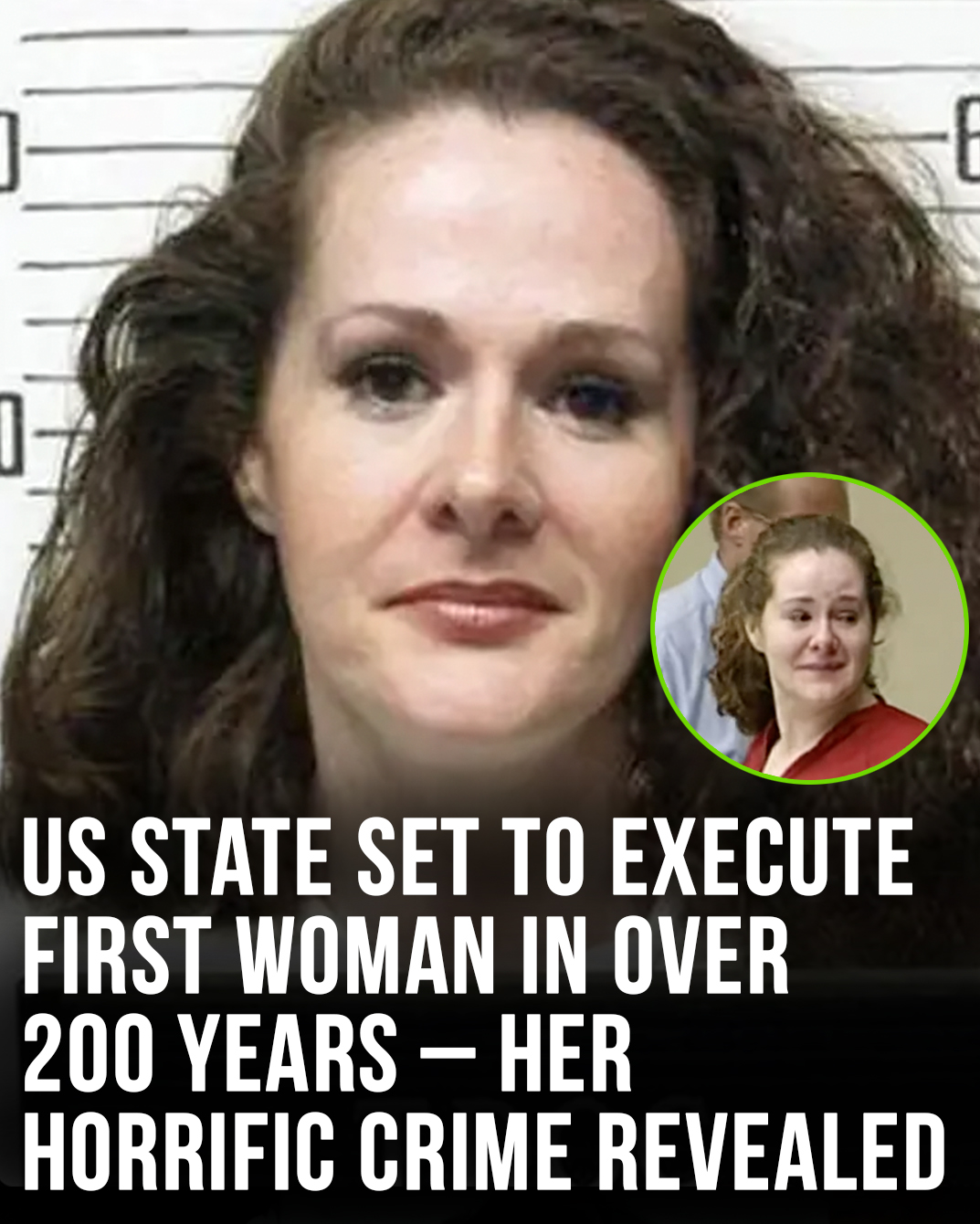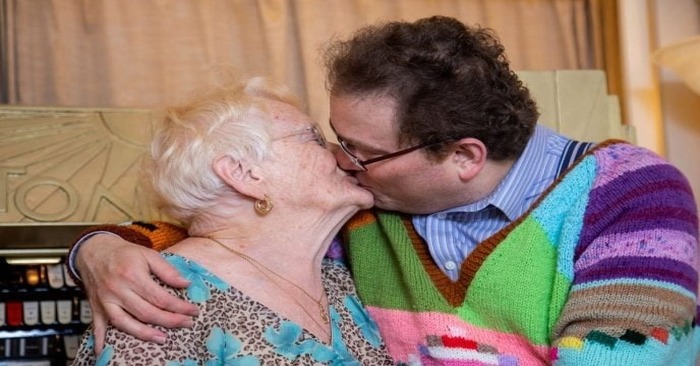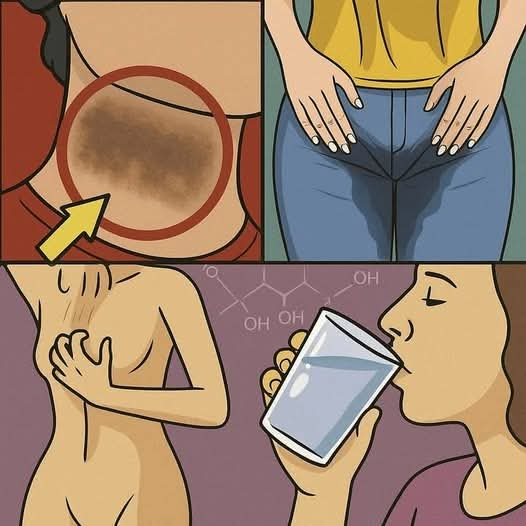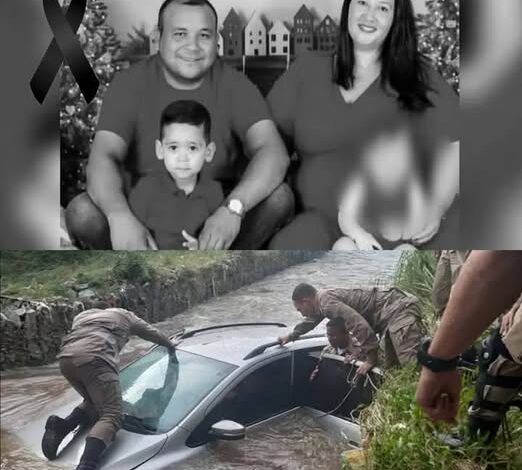
The Cariri region in Brazil was shaken by tragedy on the morning of Sunday, July 16, when an entire family lost their lives in a horrific accident on the CE-060 highway, between Caririaçu and Juazeiro do Norte. The victims — 26-year-old Hérida Nascimento da Silva, her husband Sebastião Cícero Gomes, and their 3-year-old son Miguel Nascimento Gomes — were found dead inside their car, submerged in a river along the roadside.
What began as a hopeful trip for a young family turned into a devastating loss that has left their community in mourning.
According to information confirmed by TV Verdes Mares and the Ceará Military Fire Department, the family was traveling from their hometown of Várzea Alegre to Juazeiro do Norte, a journey that typically takes about an hour. They were on their way to the hospital, where little Miguel was scheduled to undergo a surgical procedure. The drive, meant to bring healing and hope for the young boy, ended abruptly and tragically before they could reach their destination.
Investigators report that the accident occurred around 7 a.m., near the rural area of Sítio Piripiri. For reasons still under investigation, the vehicle veered off the road and plunged into a stream approximately five meters deep. The water’s depth and the car’s position made rescue efforts extremely difficult. By the time emergency teams arrived, all three passengers had already lost their lives.
The Fire Department worked tirelessly to recover the bodies and bring the vehicle to the surface. The rescue team described the scene as deeply emotional — the kind that stays with you long after the work is done. “It was heartbreaking,” one firefighter said. “You could see they were just a normal family, out on a trip. And in moments, everything was gone.”
The details surrounding what caused the car to lose control are still being investigated by local authorities. Early reports suggest several possible factors: slick road conditions, a sharp curve near the bridge, or perhaps mechanical failure. The CE-060 highway has been the site of numerous accidents in recent years, prompting questions about its safety standards and maintenance. Locals have repeatedly complained about poor lighting, faded lane markings, and lack of guardrails in dangerous stretches of the road — issues that have gone unresolved.
For many residents of the Cariri region, this tragedy feels painfully familiar. The CE-060 is one of the main routes connecting smaller municipalities to Juazeiro do Norte, the area’s largest urban center and medical hub. Families frequently travel this route for medical appointments, school, or work. And while it’s a lifeline for many, it’s also become a corridor of grief.
The death of Hérida, Sebastião, and Miguel struck a particularly deep chord because of the circumstances. Friends describe Hérida as a devoted mother and a cheerful young woman who worked at a local market. Sebastião, known for his kindness and strong work ethic, was a truck driver who often helped neighbors transport goods and supplies. Their son, Miguel, was described as bright, curious, and endlessly affectionate — the kind of child who lit up every room he entered.
“They were such a happy family,” said a close family friend. “They had plans, they had dreams. They just wanted to give Miguel the best life they could. It’s unbearable to think they’re gone.”
As news of the accident spread, messages of grief poured in from across the region. Churches held vigils, and social media filled with condolences and photos of the family smiling together. At their funeral in Várzea Alegre, hundreds gathered — friends, relatives, even strangers — to pay their respects. The sound of crying filled the air as three coffins, side by side, were lowered into the ground.
Local leaders have since called for renewed attention to highway safety in Ceará. “This tragedy is not an isolated case,” one city official said. “We need urgent infrastructure improvements, proper signage, and better guardrails to prevent more lives from being lost. How many more families have to die before something is done?”
The Ceará State Highway Department (DER-CE) has acknowledged that certain stretches of the CE-060 are in poor condition and said that an assessment is underway. But residents remain skeptical. Promises have been made before, they say, and little has changed.
Beyond the political and structural debates, what remains most haunting is the human side of this loss — a mother, a father, and a child who set out for healing and never made it home. The emotional weight of that image — a car at the bottom of a river, a tiny body among two adults — has left a lasting mark on everyone involved in the recovery effort.
For emergency workers, these moments never get easier. One firefighter who helped remove the family from the car said quietly, “When I saw the child’s car seat, I had to step away for a moment. You can’t prepare yourself for that. You think about your own kids, your own family. It’s the kind of pain that doesn’t leave you.”
The Cariri region has declared a period of mourning, and several community initiatives have begun raising funds for road safety campaigns and support for the extended family. Community members have also placed flowers and candles near the accident site, creating a makeshift memorial for the three lives lost too soon.
The tragedy has also reignited conversations about the hidden risks of long drives in rural Brazil, particularly for families traveling to major hospitals. Many smaller towns lack the medical infrastructure for specialized care, forcing residents to make frequent, sometimes dangerous, journeys. Experts argue that improving access to regional healthcare could reduce these risks and save lives in the long term.
In the aftermath, the families of Hérida and Sebastião are left with memories and unanswered questions. Their home in Várzea Alegre now sits silent, toys still in place, clothes still hanging, as if waiting for their return.
Neighbors describe how, just a few days before the accident, the couple was seen laughing together outside their home while Miguel rode his small red tricycle up and down the street. “It’s those moments that hurt the most,” a neighbor said. “One day they’re right there, and the next, they’re gone.”
For those who knew them, the only small comfort comes from believing they were together in their final moments — a family united even in tragedy.
The story of Hérida, Sebastião, and little Miguel is more than just another statistic. It’s a reminder of how fragile life can be, how quickly everything can change, and how vital it is for communities and authorities alike to take safety seriously.
Because behind every accident headline is a story like this one — a story of love, loss, and the lives that once filled a car with laughter on what was supposed to be an ordinary Sunday morning.

